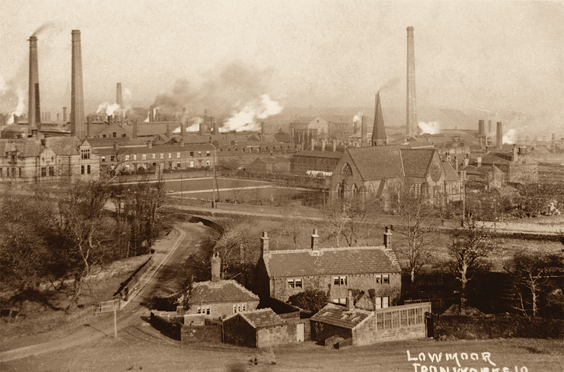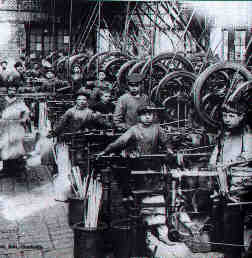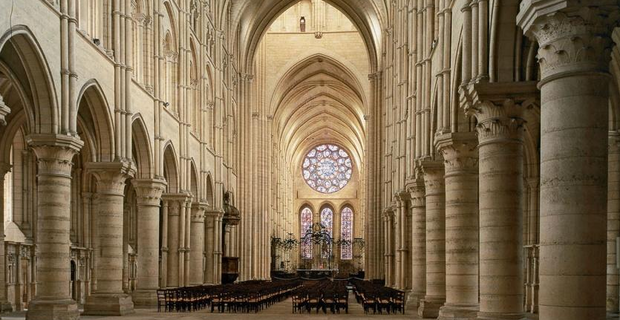
I would like to wish a very happy 200th birthday to John Ruskin, who was born on February 8, 1819.
Ruskin was an art critic and social thinker who inspired a wave of cultural rejection of industrial capitalism in Victorian England and beyond.
His anti-modern views, and embrace of nature-rooted values, strongly influenced William Morris, Marcel Proust, Mohandas Gandhi, Herbert Read and, more recently, Charlene Spretnak.
Morris described Ruskin as one of the few people of his era “in open rebellion” (1) against the industrial system, its thinking and its tastes.
This left Ruskin feeling very isolated in an England in which he was surrounded by “insane religion, degraded art, merciless war, sullen toil, detestable pleasure, and vain or vile hope”. (2)
He wrote: “Such as I am, to my own amazement, I stand – so far as I can discern – alone in conviction, in hope and in resolution, in the wilderness of this modern world”. (3)

On March 1, 1859, Ruskin addressed the Mechanics’ Institute in Bradford and declared that since “the changes in the state of this country are now so rapid”, he had some important questions to put to these advocates and shapers of the industrial age regarding what they had in mind for its future.
He asked them: “How much of it do you seriously intend within the next fifty years to be coal-pit, brick-field or quarry?
“For the sake of distinctness of conclusion, I will suppose your success absolute: that from shore to shore the whole of the island is to be set as thick with chimneys as the masts stand in the docks of Liverpool: that there shall be no meadows in it; no trees; no gardens; only a little corn grown upon the housetops, reaped and threshed by steam: that you do not leave even room for roads, but travel either over the roofs of your mills, on viaducts; or under their floors in tunnels: that, the smoke having rendered the light of the sun unserviceable, you work always by the light of your own gas: that no acre of English ground shall be without its shaft and its engine; and therefore, no spot of English ground left, on which it shall be possible to stand, without a definite and calculable chance of being blown off it, at any moment, into small pieces”. (4)
He was scathing and eloquent in his condemnation of the cold calculating logic of a mercantile society which saw no value beyond that of “enterprise” and profit.
He wrote in ‘The White-Thorn Blossom’: “You Enterprised a Railway through the valley – you blasted its rocks away, heaped thousands of tons of shale into its lovely stream. The valley is gone, and the Gods with it; and now, every fool in Buxton can be in Blakewell in half-an-hour, and every fool in Blakewell at Buxton; which you think a lucrative process of exchange, you Fools Everywhere”. (5)
Ruskin had that rare ability of being able to take an overview of the society in which he lived, of seeing the larger economic and cultural forces at play.
He described how the artificial “needs” of those living in cities like London drained the vital energy out of the people and the land.
The peasants had always supplied the townsfolk with food, but could not, without machinery, supply “the flimsy dresses, toys, metal work, and other rubbish, belonging to their accursed life”, Ruskin explained.
“Hence over the whole country the sky is blackened and the air made pestilent, to supply London and other such towns with their iron railings, vulgar upholstery, jewels, toys, liveries, lace, and other means of dissipation and dishonour of life.
“Gradually the country people cannot even supply food to the voracity of the vicious centre; and it is necessary to import food from other countries, giving in exchange any kind of commodity we can attract their itching desires for, and produce by machinery. The tendency of the entire national energy is therefore to approximate more and more to the state of a squirrel in a cage, or a turnspit in a wheel, fed by foreign masters with nuts and dog’s meat”. (6)

Ruskin’s heart-felt despair at the industrial destruction of England’s way of life – the transition from traditional Gemeinschaft to modern Gesellschaft described by Ferdinand Tönnies – shone through his prose.
He wrote, of London: “They took the bread and milk and meat from the people of their fields; they gave it to feed, and retain here in their service, this fermenting mass of unhappy human beings, – newsmongers, novel-mongers, picture-mongers, poison-drink-mongers, lust and death-mongers; the whole smoking mass of it… with every activity in it, a form of putrefaction”. (7)
Ruskin was under no illusion as to who was to blame for all this. It was the money-men, the capitalist parasites whose self-centred greed destroyed everything of authentic value.
He wrote: “The guilty Thieves of Europe, the real sources of all deadly war in it, are the Capitalists – that is to say, people who live by percentages on the labour of others; instead of by fair wages for their own”. (8)
Ruskin’s 1862 book Unto This Last, a blast against capitalist economics, attracted a lot of attention. More than 100,000 copies were sold by 1910, and it was translated into several languages, including an edition in Gujarati published by Gandhi. (9)
Here he famously declared that “there is no wealth but life” (10) and insisted that “the art of becoming ‘rich’ in the common sense, is not absolutely nor finally the art of accumulating much money for ourselves, but also of contriving that our neighbours shall have less. In accurate terms, it is ‘the art of establishing the maximum inequality in our own favour'”. (11).
Against the false needs and toxic productivism of industrial capitalist civilization, Ruskin promoted the vision of a simple and healthy way of living.
He wrote: “There are three Material things, not only useful, but essential to Life. No one ‘knows how to live’ till he has got them. These are, Pure Air, Water, and Earth”. (12)
Nature and its organic aesthetics, said Ruskin, was the source for everything that was worthwhile in human culture, such as the great Gothic architecture of the Middle Ages.

For Ruskin, Gothic was a form of art that was natural, human and beautiful, an art which expressed a social world of “tranquil and gentle existence, sustained by the gifts, and gladdened by the splendour, of the earth”. (13)
Its living qualities stood in stark contrast to the sterility of the Machine Age, with its straight lines, right angles and search for an inhuman “perfection”.
Ruskin wrote: “Accurately speaking, no good work whatever can be perfect, and the demand for perfection is always a sign of a misunderstanding of the ends of art… imperfection is in some sort essential to all that we know of life. It is the sign of life in a mortal body, that is to say, of a state of progress and change. Nothing that lives is, or can be, rigidly perfect; part of it is decaying, part nascent”. (14)
Alfed Noyes described Ruskin as the prophet of a new religion, “the religion of beauty”, (15) one who hoped to spark cultural renewal by calling on the young artists of his day to “go to Nature… rejecting nothing, selecting nothing and scorning nothing”. (16)
He was successful in this attempt and directly inspired the Pre-Raphaelite Brotherhood, who chose their name on the basis of Ruskin’s dislike of what he termed “the clear and tasteless poison of the art of Raphael”. (17)
Writes Stephen Coote: “When the second volume of The Stones of Venice and its great chapter on ‘The Nature of Gothic’ appeared in 1853, The Brotherhood discovered their sacred text.
“To Morris, reciting the book’s set-piece passages to his Oxford friends, Ruskin was the master who both formulated his deepest discontents and gave voice to his sense of mission.
“When, at the end of his career, Morris printed an edition of Ruskin’s The Nature of Gothic, he described it as ‘one of the few necessary and inevitable utterances of the century'”. (18)

1. William Morris, ‘How I Became A Socialist’, News From Nowhere and Selected Writings and Designs, ed. by Asa Briggs (London: Penguin, 1984), p. 35.
2. John Ruskin, ‘Athena Keramitis’ in The Genius of John Ruskin: Selections from his Writings, ed. by John D. Rosenberg (London: George Allen & Unwin Ltd, 1964) p. 361.
3. John Ruskin, ‘The Catholic Prayer’, in The Genius of John Ruskin, p. 417.
4. John Ruskin, ‘Modern Manufacture and Design’, in The Genius of John Ruskin, p. 223.
5. John Ruskin, ‘The White-Thorn Blossom’ in The Genius of John Ruskin, p. 369.
6. John Ruskin, ‘The Squirrel Cage’ in The Genius of John Ruskin, pp. 400-01.
7. Ruskin, ‘The Squirrel Cage’ in The Genius of John Ruskin, pp. 402.
8. John Ruskin, ‘Charitas’, in The Genius of John Ruskin, p. 377.
9. Charlene Spretnak, The Resurgence of the Real: Body, Nature, and Place in a Hypermodern World (New York: Routledge, 1999), pp. 148-49.
10. John Ruskin, Unto This Last (Filiquarian Publishing, 2007), p. 90.
11. Ruskin, Unto This Last, p. 37.
12, Ruskin, ‘The White-Thorn Blossom’ in The Genius of John Ruskin, p. 369.
13. Ruskin, ‘The Nature of Gothic’, cit. Stephen Coote, William Morris: His Life and Work (Oxford: Past Times, 1995) p. 21.
14. Ruskin, ‘The Nature of Gothic’ in The Genius of John Ruskin, pp. 183-84.
15. Alfred Noyes, William Morris (London: Macmillan & Co, 1908), p. 15.
16. The Pre-Raphaelites (London: Tate Gallery/Penguin, 1984), p. 52.
17. John Ruskin, cit. Coote, p. 23.
18. Coote, pp. 17-18.
Leave a Reply